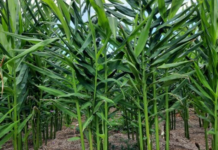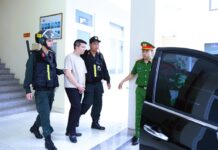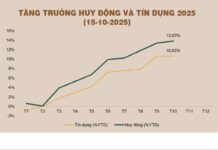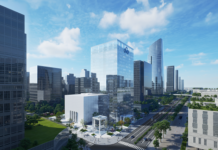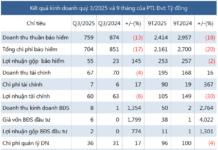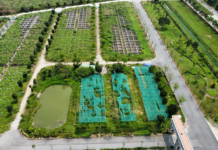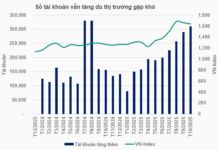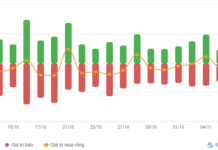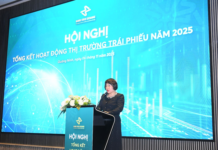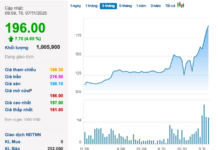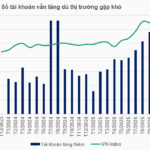“Boost” from infrastructure
The strong development of infrastructure from 2024 will become an important driving force, stimulating the breakthrough of the real estate market here. Because, according to the plan, in the 2024-2025 phase, Hanoi will concentrate its efforts on elevating Hoai Duc, Thanh Tri, and Dan Phuong districts to Quan. Experts believe that the upgrading of these districts is not only a step forward in urban planning but also creates a great attraction for the real estate market.
An outstanding example in this transformation process is Thanh Tri district, which has met 27 out of 31 criteria to become a district. This district has also fulfilled the standards for urban infrastructure development, laying a solid foundation for future development.
The conversion from district to Quan involves the restructuring of land use. Agricultural land will be converted into service land, residential land, and commercial service land. The highlight of this development is the formation of smart cities, commercial centers, entertainment areas, and premium healthcare service areas, along with the synchronized connection of technical and social infrastructure.
Especially, the South Hanoi area is witnessing a strong transformation in the real estate sector, thanks to important infrastructure projects. Among them, the urban railway project No.1 (Yen Vien – Ngoc Hoi) plays a crucial role.
This system not only serves the North – South high-speed railway but also integrates national and urban railway lines, creating a versatile transportation hub connecting regions. The project is progressing with a plan to be completed in 2024, which will create a new wave in the real estate sector, significantly improving connectivity and accessibility to the area.
Additionally, Hanoi has proposed to build a high-speed railway station in Phu Xuyen. This aims not only to serve the construction of the capital’s second airport but also to support the development of satellite urban areas, with an expected population of up to 127,000 people.
Notably, the second airport of Hanoi is located in the southern area of the Northwest – National Route 5B highway, between Phap Van – Cau Gie highway, National Route 1A, North – South high-speed railway, Thong Nhat North – South railway, and the southern economic traffic axis, expected to be implemented after 2030. This will be a significant boost to upgrade the transportation and aviation infrastructure of the capital city.
The development of the second airport will bring a new wave to the real estate market in the South Hanoi area. Improvements in infrastructure and transportation connectivity not only attract investment and economic development but also increase the value of real estate in the area.
The South rises to become the most vibrant real estate market in Hanoi
According to Savills Vietnam, the southern area will become one of the most vibrant real estate markets in Hanoi from 2023 onwards. The story of rising real estate prices seen in East Hanoi over the past 5 years is expected to be repeated in South Hanoi over the next 5-10 years, especially as infrastructure is being strongly promoted.
In fact, in the secondary market, some projects in the south of Hai Ba Trung district along the belt road 2 have increased by 9-10% per year for the past 3 years, higher than the city average increase of about 4% per year.
According to a late 2023 survey by the One Mount Real Estate Market Research and Customer Understanding Center, among the 63% of people with real estate demand in 2024, they are interested in apartments, land, and houses. The volume of transactions in the Hanoi secondary market in the last month of 2023 was vigorous, with a higher number of residential transactions than project transactions. Residential real estate has been traded more due to its high stability, attractive price level, and many advantages in business.
Savills Vietnam experts also forecasted that real estate investment activities in Hanoi will be revitalized in the third quarter of 2024, stimulated by large neighboring markets.
At this time, some foreign investors with strong financial, professional, reputable backgrounds and deep understanding of the Vietnamese market are seizing opportunities to introduce new products.
In reality, over the past two years, in the southern market, Gamuda Land has a strategy of investing in short-term land fund expansion, within 5 – 7 years and focusing on densely populated residential areas or areas planned for infrastructure. Meanwhile, in the Hanoi market, the developer pursues long-term projects, developing comprehensive urban areas. Because Gamuda Land believes that this is where there is a lot of potential for residential real estate driven by the increasing rate of population moving to suburban areas.
Especially, due to the advantages of location and potential of this project, the selling price has continued to increase. Since Phase I of the project, with the starting price in 2014 of 43.6 million VND/m2, it is now being offered at about 160 million VND/m2 in the secondary market for 2 lines of standalone and semi-detached villas at Gamuda Gardens project.
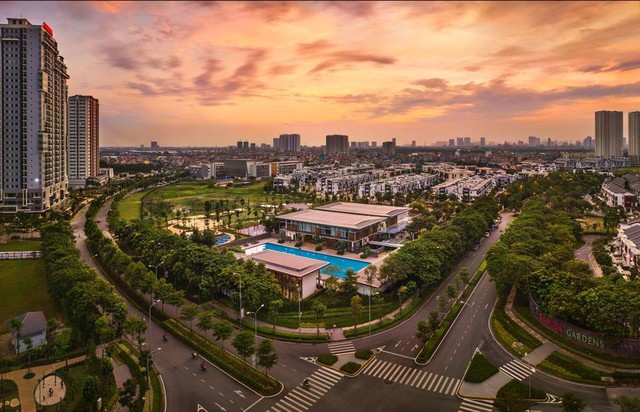
A corner of Gamuda City, Yen So, Hoang Mai urban area
Not only Hoang Mai district, many neighboring areas also recorded annual price increases. On many real estate trading forums, land prices in Thanh Tri District range from 70 million VND/m2, house prices up to 120 million VND/m2, equivalent to land prices in downtown Hanoi.
In addition to the need for housing, real estate is still seen as an investment channel, but it is a long-term investment. Many experts believe that when the metro lines and ring roads are completed, there will be a gradual shift to the outskirts. This is an ideal time for investors looking for opportunities to invest in Hanoi real estate and a suitable place for residents who want to find a “worth living” address for themselves and their families.

